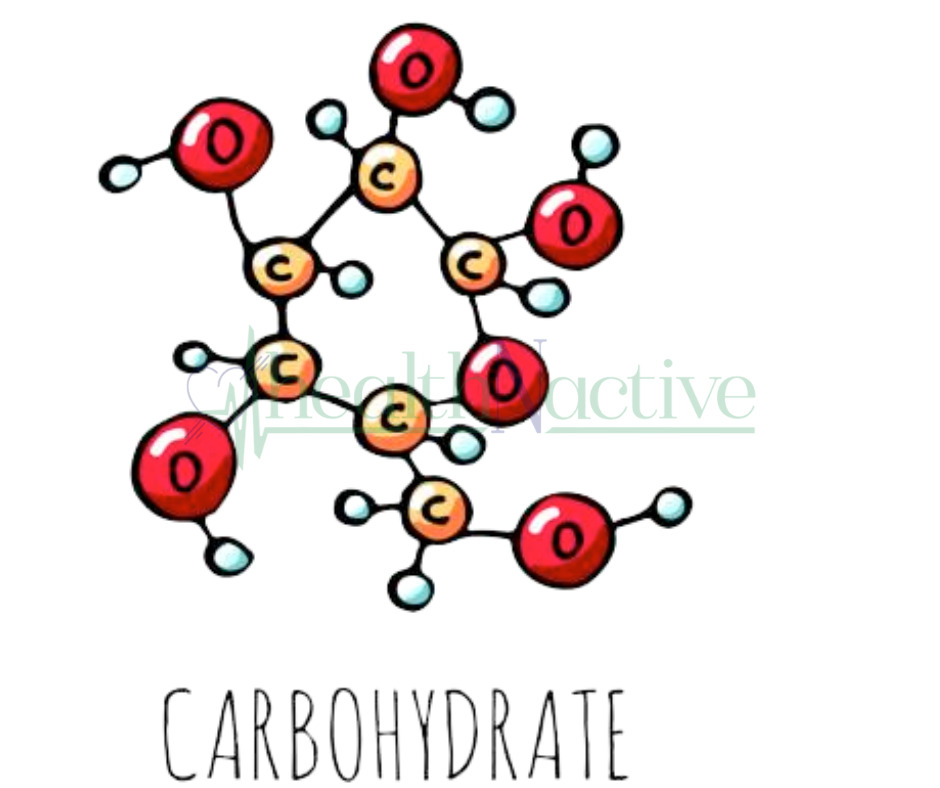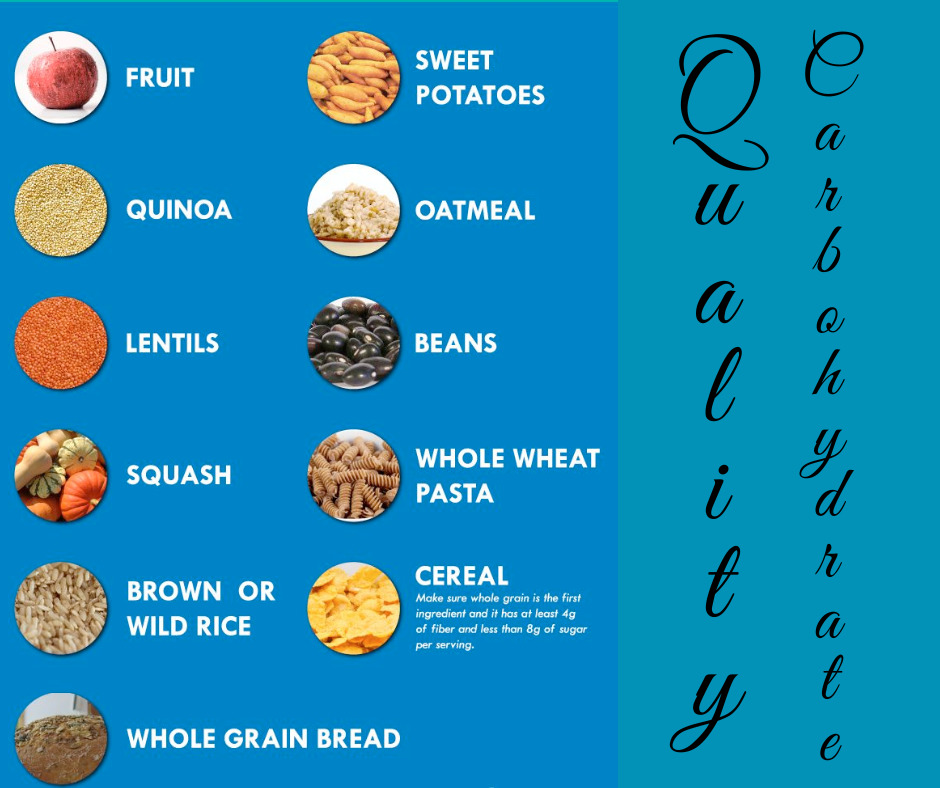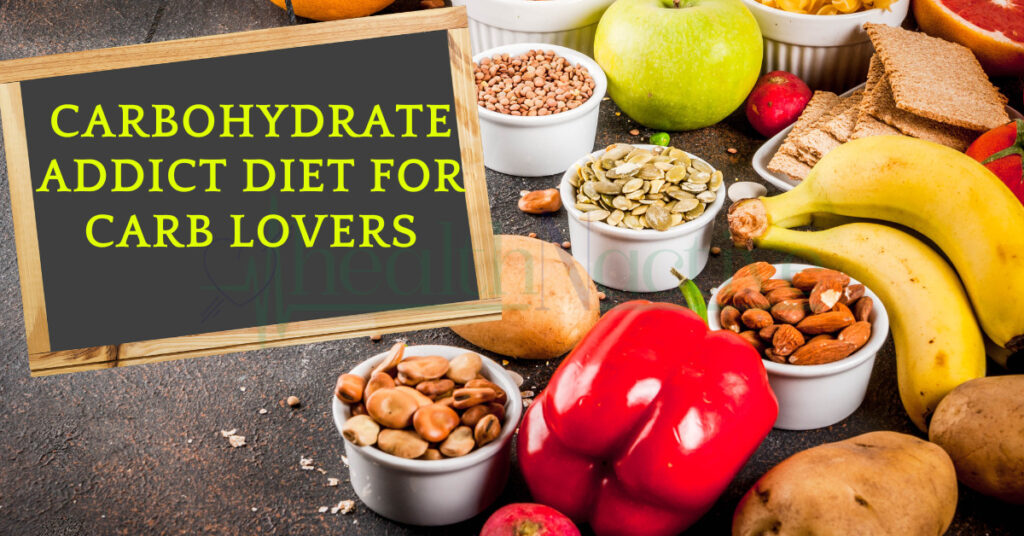The carbohydrate addict diet is a diet that prioritises low-carbohydrate foods. It’s based on the idea that some people have uncontrollable cravings for high-carb foods as a result of their pancreas releasing too much insulin, causing weight gain.
The Beginning of Carbohydrate addict Diet
The carbohydrate addict’s diet was created by American research scientists Rachel Heller and Richard Heller in the early 1990s after the husband and wife reduced a total 75 kg on the diet. Both are biomedical science professors and researchers.
What is Carbohydrate
Carbohydrates are carbon, hydrogen, and oxygen molecules joined together by energy-containing bonds.
Carbohydrates are divided into two categories: complicated and simple.

Polysaccharides are a type of complex carbohydrate that includes starch and fibre. Sugars are simple carbohydrates that are divided into monosaccharides (one sugar molecule) and disaccharides (two sugar molecules).
Along with proteins and fats, carbohydrates are one of the three primary food groups. They are necessary for human survival and wellness. Simple or complicated carbohydrates exist. Both have four calories per gram and are further converted by the body to glucose, but complex carbs take longer to digest since they spend the majority of their time in the large intestine. Plants, vegetables, and grains are essentially entirely sources of carbohydrates.
Carbohydrate Addict Diet: Know more
The carbohydrate addict diet is a plan based on the idea that regulating insulin levels in the body will lead to less insulin resistance and less cravings for carbohydrate-rich foods.
The diet consists of two steps
Reducing high-carbohydrate foods
Using dietary supplements to manage insulin levels.
Although exercise is recommended as part of this diet, it is not emphasised extensively. Carbohydrate addiction is defined as a strong urge, hunger, or yearning for carbs, as well as an increasing and recurring need for starchy foods, snack foods, junk foods, and sweets. Breads, cakes, cereals, chocolate, cookies, fruit and fruit juices, potato chips, potatoes, pretzels, rice, pies, popcorn, and sugar-sweetened beverages are just a few examples of these items.

Carbohydrate addiction affects up to 75% of those who are overweight. When carbs are consumed, the hormone insulin is overproduced, resulting in carbohydrate addiction. Insulin instructs the body to consume more food, and once the food is consumed, insulin instructs the body to store the excess energy as fat. Post-prandial reactive hyperinsulemia occurs when too much insulin is secreted after eating. Insulin resistance develops in certain patients with this disorder over time, when tissue cells quit responding to insulin.
The body continues to secrete insulin, but it is unable to use the glucose properly because the tissues do not respond to it. Diabetes, high cholesterol, high triglycerides, high blood pressure, and cardiovascular disease are all common symptoms of insulin resistance. Insulin resistance syndrome is a phrase used when more than one of these disorders are observed together.
Since there is no medical test available to find carbohydrate addiction, a self-administered quiz is used to evaluate if someone is addicted to carbohydrates. Below are few questions and ask yourself with Yes or No
Even if you’ve eaten a big breakfast, are you hungry before lunch?
Is it difficult to give up carbs, snacks, junk food, or sweets?
Despite having just finished a meal, do you feel unsatisfied?
Do you get hungry when you sight, smell, or think about food?
When you’re not hungry, do you eat?
Do you eat something late at night?
Are you tired after a large meal?
Do you get fatigued and/or hungry in the afternoon for no apparent reason?
Do you keep eating even when you’re full?
The amount of “yes” answers determines the quiz’s score.
A score of 0–2 suggests that you are not addicted to carbohydrates.
A score of 3–4 indicates that you have a minor carbohydrate addiction.
A score of 5–7 indicates that you have a moderate addiction.
A score of 8–10 suggests a strong carbohydrate addiction.
For the first week, the carbohydrate addict’s diet starts with the entry plan, which includes two complementary meals and one bonus meal each day. The diet is altered in subsequent weeks based on a person’s weight loss goal and the amount of weight lost the previous week.
A snack and salads are also permitted on the diet. One serving of meat and two cups of low-carb vegetables or two cups of salad make up the supplementary meal. There is a large selection of meats and veggies from which to choose. The bonus meal can be as large as the individual desires, but it must have equal amounts of protein, low-carb veggies, and high-carb carbohydrates. Within one hour, the bonus meal must be consumed.
If you’re not hungry in the morning, it is suggest bypassing breakfast and instead drinking coffee or tea. Breakfast skipping is not frequently advised by dieticians and nutritionists.
Carbohydrate Addict Diet for Teenagers and children
For children and teenagers, there are two different carbohydrate addict diets. Carbohydrate addiction affects up to 74 percent of children and teenagers. It also causes problems with behaviour, motivation, focus, learning difficulties, and mood swings in adolescents. Children on the step-by-step carbohydrate addict’s diet are given additional food incentives in addition to the bonus meal.

The carbohydrate addict’s jump-start diet is for older children and teens. It provides fibre and protein-rich foods for meals and snacks. It includes a bonus meal, similar to the adult diet, in which dieters can eat whatever they want as long as they eat equal portions of protein, low-carb veggies, and high-carb foods.
How it Works
The carbohydrate addict’s diet is based on correcting the body’s excessive insulin release, which occurs after eating high-carbohydrate foods. The excessive release of insulin causes a strong and recurring desire for carbohydrate-rich foods. The diet, when paired with exercise, is intended to address the underlying source of cravings: excessive insulin release.
Benefits
The main advantage of the carbohydrate addict’s diet is that it allows them to regulate their urges and reduce weight by only eating high-carb items once per day. The diet is less restrictive than other diet programmes, allowing for one meal each day with three equal amounts of high-carbohydrate, high-protein, and low-carbohydrate items. Low-fat breads, egg whites, egg replacements, and tofu are allowed in the carbohydrate addict’s diet, making it suitable for vegetarians (but perhaps not vegans).

Limitations
The carbohydrate addict’s diet, like any other stringent diet, should be followed under the guidance of a doctor. Diabetics should see an endocrinologist, who may suggest talking to a dietician about their diet. Based on their overall health and any specific medical concerns they may have, people considering the carbohydrate addict’s diet should ask their doctors if they need to take any vitamin, mineral, or nutritional supplements.
Concerns
A carbohydrate addict’s diet poses no general health dangers. The diet is criticised for having too much fat, not being nutritionally balanced, and not being a long-term strategy for losing weight and keeping it off. Long-term maintenance of a low-carb diet may be difficult. Women who are pregnant or breastfeeding should avoid the diet. Before beginning any low carb diet, anyone who have had a stroke, diabetes, heart disease, high cholesterol, or kidney stones should consult their doctor.
Conclusion
The medical community and dietitian’s have different views about the carbohydrate addict’s diet and low-carb diets in general. Low-carb diets have been proven in certain trials to be useful in managing blood sugar levels in diabetics and aiding weight loss. These conclusions have been challenged by other research. Although no major studies or research have demonstrated that low-carb diets are detrimental to one’s health, most professional organisations oppose them.

